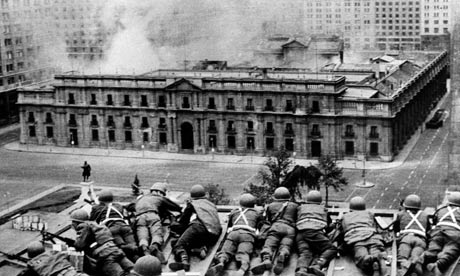Russia and Qatar have been awarded hosting rights for upcoming FIFA World Cup tournaments which are to take place in 2018 and 2022 respectively. The usual hype around the much anticipated football matches have recently been clouded in skepticism however, as growing fears over the threat of potential terrorist activity have brought into question the suitability of each city. Such fears first came to light when Russia was awarded hosting rights for the 2014 Winter Olympics, immediately leading to widespread speculated that the potential risk of attack from Chechen terrorist groups could not only disrupt the games but could leave a black mark on the the city of Sochi and the Olympics all together, as had happened in Munich during the 1972 summer Olympics.
With the guarantee that millions will be watching the World Cup, the conditions to get notoriety and attention for an attack are ideal. Past attacks in the North Caucasus along with the 2002 Moscow theatre siege and the 2004 school massacre in Beslan have weakened the international perception of Russia’s internal stability and have provided jihadi separatists from Dagestan and Chechnya ample opportunity to gain worldwide publicity.
Amidst the possibility of a terrorist attack in Russia during the tournament, the recent political turmoil between Russia and the Ukraine have only served to enhance the argument that Russia is in an unsuitable position to welcome the global community into its borders. Having invaded and annexed the territory of a neighboring and sovereign state, many analysts are now wondering why footballs’ governing body would award the privilege of hosting the World Cup to a nation being blamed for breaching international law.
While fear of a Chechen terrorist attack plagues the upcoming games in Russia, in Qatar such concerns focus on the possibility of a similar attack from al-Qaeda. These concerns are not completely new to the FIFA community, as a mere seventeen days prior to naming the host of the 2022 World Cup Tournament, FIFA had made it clear the risk that would be involved should Qatar be awarded hosting rights, due to its close proximity to countries with a strong al-Qaeda presence and to the fact that matches would be played very close to one another, therefore putting the tournament at serious risk of being attacked.
While Qatar has received praise from Washington for its participation in the ‘Global War on Terror,’ it has equally received heavy criticism after it was brought to light that the Islamic State in Syria and Iraq (ISIS) has been receiving heavy funding from those located within Qatar and that various prominent Qataris, including members of the ruling family, are suspected of funding al-Qaeda, thus raising great cause for concern for security analysts responsible for monitoring the upcoming games.
With a number of years to go before the 2018 and 2022 World Cup games, there is still plenty of time for further discussion regarding FIFA’s choice of host nations.




